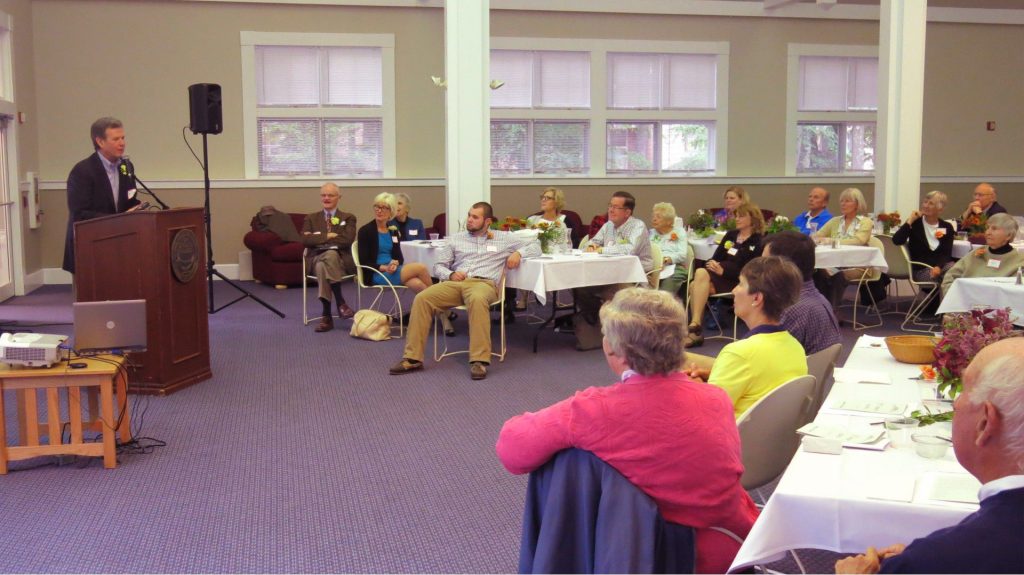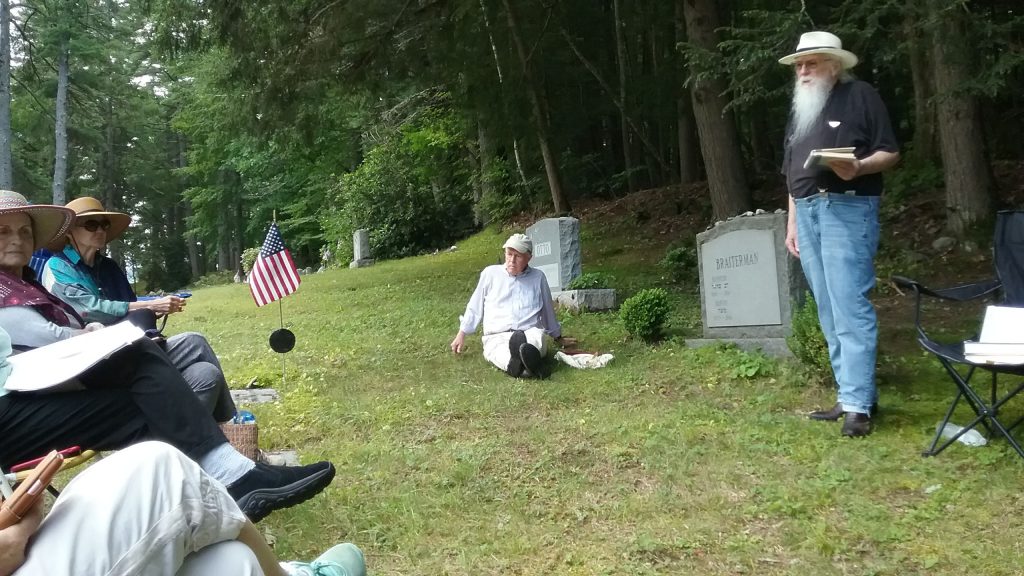By the Learning Institute of New England College
September is registration month for six-week classes offered by LINEC, the Learning Institute of New England College. This volunteer-led organization offers ten mini-courses on or around the college’s Henniker campus, or on Zoom. Course topics range widely from poetry to genetically modified organisms to the role of money through history, and more. Two classes requiring special audio-visual equipment will meet in Bow at Baker Free Library; a showing and discussion of Alfred Hitchcock’s films, and a deep look into Shakespeare’s “Twelfth Night”. A full description of classes beginning Oct. 2 is available at linec.org.
Senior learning has undergone change since Covid restrictions were lifted. Established in 1989, LINEC was an in-person institute affiliated with the Road Scholar program, using classroom space at New England College. Frequently, friendships formed and seniors got together for lunch or coffee between classes.
Today, Zoom courses enable learners who do not drive or those outside the Henniker area to participate. The consolidation of campuses in the New England College system severely limited available classroom space, so most in-person LINEC classes meet in other local venues.
Seven senior learning programs in Massachusetts, New Hampshire and Vermont recently initiated discussions of how they manage post-Covid learning in retirement. All report decreased enrollment. Most of those surveyed have paid or part-time staff, but only two, including LINEC, do not have an office at the local college. Seniors taking courses in programs affiliated with Keene State University, Colby-Sawyer College and Rivier University meet on college campuses, taught by paid instructors. LINEC draws from the expertise and experience of members who volunteer for class leadership, and among programs surveyed, is the smallest with 61 members. Keene State topped the list with 770 participants in its program.
This makes LINEC’s continuing achievements remarkable. Between 35 and 40% of its members volunteer in support of programs. This level of engagement develops social connections and is a testimonial to members’ commitment to continuation of the institute. New enrollees are welcomed with the friendliness that comes from a small, personalized program.










